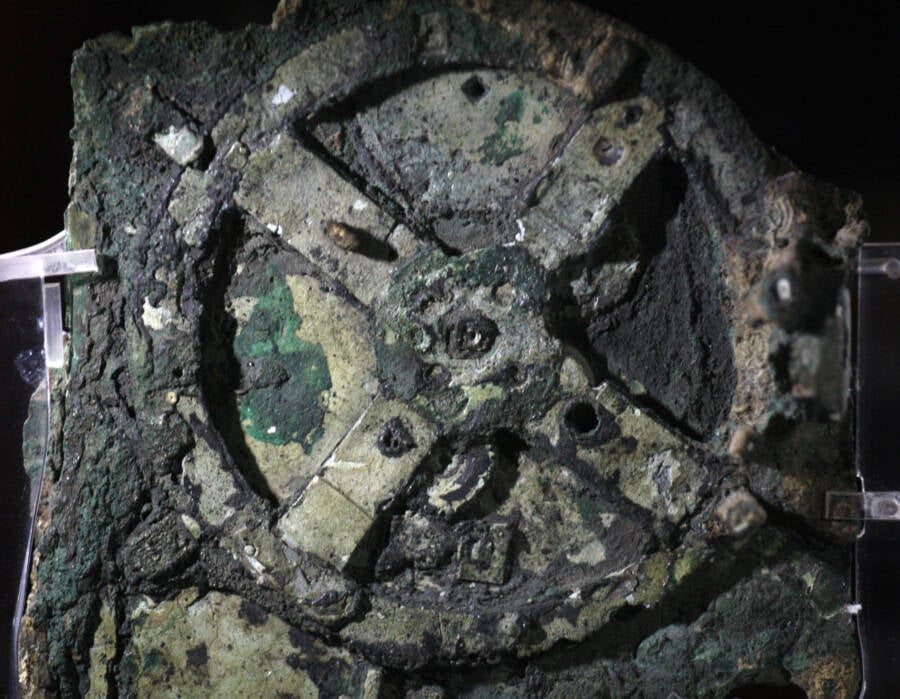How Did The Ancient Greeks Build The Antikythera Mechanism?

Heritage Images/Getty ImagesDating back to 205 B.C.E., the Antikythera mechanism is considered to be the world’s oldest computer.
In 1901, Greek sponge divers in the Aegean Sea near the island of Antikythera discovered the sunken remains of a Roman-era vessel full of statues, gold jewelry, and coins.
Among the wreckage, they uncovered a collection of seemingly worthless bronze lumps — which ultimately proved to be the most curious and valuable items in the shipwreck. They were the pieces of an ancient Greek computer that was nearly 2,000 years old, now known as the Antikythera mechanism.
Naturally, the discovery of the world’s oldest computer drew the attention of researchers around the world.
In May 1902, archaeologists began to piece together the strange lumps of bronze, each inscribed with Greek writing and containing tiny gears. In total, they had 82 pieces, 30 of which were interlocking gears — an incredibly modern technological design.
As they examined the mechanism, they found that it could track time on three different calendars, chart the movement of celestial bodies, and accurately predict the moon’s waxing and waning.
Frustratingly, though, researchers only recovered a third of the device, and spending centuries underwater had corroded the bronze, making it difficult to read the instructions or piece things together properly.

Public DomainDerek de Solla Price, a professor who studied the Antikythera mechanism.
And of course, the biggest question researchers had was how could the ancient Greeks invent such an amazing, advanced device, only for it to disappear for over 1,000 years?
In 1956, Yale University professor Derek de Solla Price attempted to answer that question. Using early X-ray technology, he determined that the Antikythera mechanism was the world’s first “computer,” which the ancient Greeks had used to unlock the mysteries of the universe.
And though scientists have continued to study the device since Price’s initial hypothesis, using more advanced X-ray technologies to create computer models of the device, no one is quite certain how the ancient Greeks were able to invent the miraculous mechanism.
“There’s no evidence that the ancient Greeks were able to build something like this,” one researcher, University College London’s Adam Wojcik, said. “It really is a mystery.”
After exploring history’s greatest ancient mysteries, read about five more unsolved mysteries from human history. Then, discover the six most fascinating sunken cities across the world.





